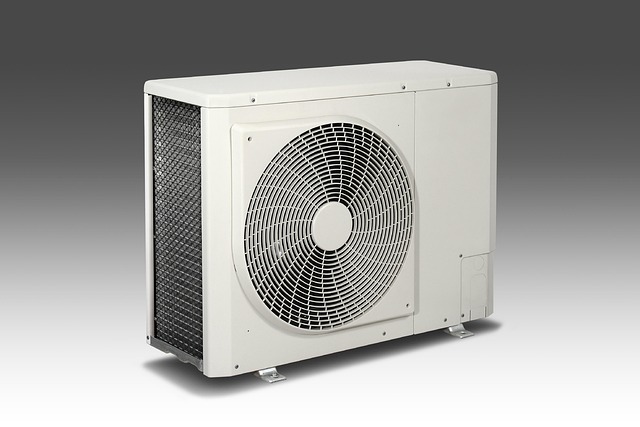Prepare Your HVAC for Seasonal Challenges
As seasons change, HVAC systems face pressure to maintain consistent temperatures, uncovering issues like clogged air filters and refrigerant leaks that can hinder efficiency. Proactive maintenance and smart technologies enhance system performance while curbing energy costs. This year, uncover how vigilant monitoring can address unseen problems and fortify systems against extreme weather and aging impacts.

Seasonal changes bring unique challenges to HVAC systems, requiring thoughtful preparation and maintenance to ensure optimal performance. Whether you’re managing industrial HVAC systems or residential units, proper seasonal preparation can extend equipment life, improve energy efficiency, and prevent unexpected breakdowns during extreme weather conditions. This comprehensive guide explores essential strategies for keeping your HVAC system running smoothly throughout the year.
Industrial HVAC Systems: Seasonal Maintenance Essentials
Industrial HVAC systems require specialized attention due to their complexity and critical role in maintaining operational environments. Before each season change, conduct thorough inspections of all components including chillers, boilers, air handlers, and cooling towers. Replace filters more frequently during high-demand seasons—every 1-3 months during summer and winter versus 3-6 months during milder seasons.
For summer preparation, ensure cooling towers are clean and free of scale buildup, which can reduce efficiency by up to 25%. Before winter, test heating elements, check burner assemblies, and verify that freeze protection systems are operational. Industrial systems benefit from seasonal setpoint adjustments that account for changing humidity levels and occupancy patterns, potentially saving 10-15% on energy costs.
Understanding Hvac Sistemi Components for Year-Round Performance
The term “hvac sistemi” (HVAC systems in some European contexts) encompasses the integrated components that work together to maintain indoor climate control. Each component faces different seasonal challenges. During summer months, condensers and compressors work harder, making them vulnerable to overheating and refrigerant pressure issues. Regular cleaning of condenser coils before summer can improve cooling efficiency by up to 30%.
Evaporator coils face different challenges in winter months when they may experience reduced airflow or even freezing in extreme conditions. Seasonal preparation should include checking drain lines and pans before humidity increases in spring and summer. Ductwork requires inspection for leaks twice yearly, as seasonal temperature fluctuations can cause expansion and contraction that compromises seals and insulation.
Field Service Management Software for Small Business HVAC Operations
Modern HVAC maintenance increasingly relies on specialized field service management software that helps small business operators track seasonal maintenance schedules and equipment performance. These digital tools enable technicians to document system conditions before and after seasonal transitions, creating valuable historical performance data. Preventive maintenance modules can automatically schedule seasonal tasks based on manufacturer recommendations and local climate patterns.
Small HVAC businesses can leverage these software solutions to implement condition-based maintenance programs that respond to seasonal demands. Features like mobile diagnostics allow technicians to identify potential issues before they become critical seasonal failures. Remote monitoring capabilities provide real-time alerts about system performance changes as weather conditions shift, enabling proactive interventions that prevent costly emergency service calls.
Seasonal Energy Efficiency Strategies for HVAC Systems
Energy consumption patterns for HVAC systems vary dramatically by season. Implementing season-specific efficiency strategies can significantly reduce operational costs. During summer, installing programmable thermostats or building automation systems can reduce cooling costs by 10-30% by adjusting temperatures during unoccupied periods. For winter operation, ensuring proper insulation around ducts in unconditioned spaces can prevent heat loss of up to 30%.
Seasonal commissioning—the process of testing and adjusting HVAC systems for optimal performance in current conditions—should be performed at least twice yearly. This process includes calibrating sensors, verifying control sequences, and adjusting airflow patterns to match seasonal requirements. For facilities with variable occupancy, implementing seasonal scheduling adjustments can provide additional energy savings of 5-15% without compromising comfort.
HVAC System Comparison by Seasonal Performance
When evaluating HVAC solutions for year-round performance, understanding how different systems handle seasonal challenges becomes crucial. Below is a comparison of common commercial and industrial HVAC systems based on their seasonal adaptability:
| System Type | Summer Performance | Winter Performance | Seasonal Transition Requirements | Estimated Annual Maintenance Cost |
|---|---|---|---|---|
| Rooftop Units | Good cooling capacity, vulnerable to extreme heat | Moderate heating efficiency, requires regular defrost cycles | Filter changes, coil cleaning, refrigerant check | $2,500-$5,000 per unit |
| Chiller Systems | Excellent cooling for large spaces, high water usage | Requires separate heating solution | Water treatment, condenser cleaning, compressor inspection | $5,000-$12,000 per system |
| VRF/VRV Systems | Superior efficiency in moderate climates, zoned cooling | Effective heat pump operation to 0°F, supplemental heat needed below | Minimal transition requirements, software updates | $3,000-$7,000 per system |
| Geothermal Systems | Consistent performance, less affected by outdoor temperatures | Excellent heating efficiency without fossil fuels | Ground loop inspection, heat exchanger cleaning | $2,000-$4,000 per system |
Prices, rates, or cost estimates mentioned in this article are based on the latest available information but may change over time. Independent research is advised before making financial decisions.
Preparing for Extreme Weather Events: HVAC Resilience Planning
Extreme weather events require additional HVAC preparation beyond routine seasonal maintenance. For summer heat waves, consider installing protective covers for outdoor units to prevent damage from debris and direct sunlight exposure. Surge protectors can safeguard sensitive electronic components during thunderstorms. Before hurricane or flood seasons, elevate outdoor equipment where possible and secure units against high winds.
Winter storm preparation should include insulating exposed pipes, installing heat tape on vulnerable components, and ensuring emergency power options for critical systems. Develop a seasonal emergency response plan that includes shutdown procedures, restart protocols, and equipment protection measures. Implementing these precautionary steps can prevent catastrophic damage during extreme conditions and reduce recovery time following weather events.
Seasonal HVAC preparation is not merely about maintaining comfort—it’s a critical investment in equipment longevity, energy efficiency, and operational reliability. By understanding the specific challenges each season presents and implementing appropriate maintenance strategies, facility managers and homeowners can ensure their HVAC systems deliver consistent performance year-round. Leveraging modern management tools and following manufacturer-recommended maintenance schedules creates a proactive approach that minimizes disruptions and optimizes system performance regardless of external conditions.




